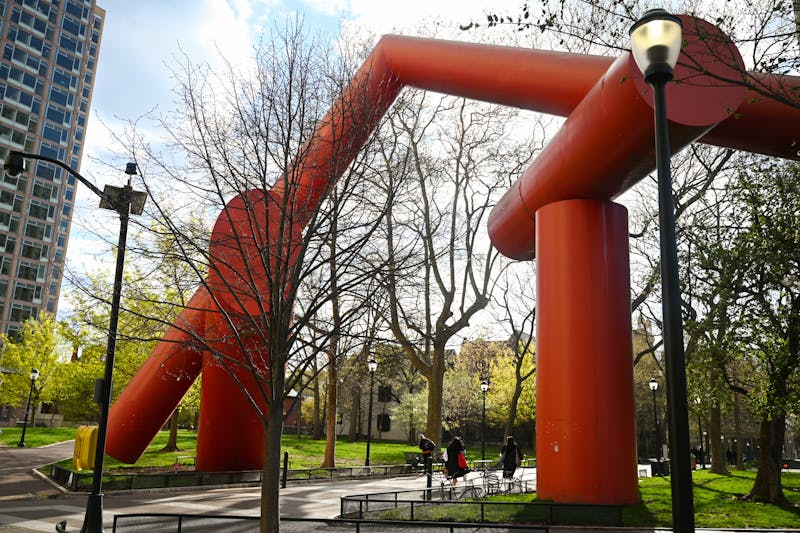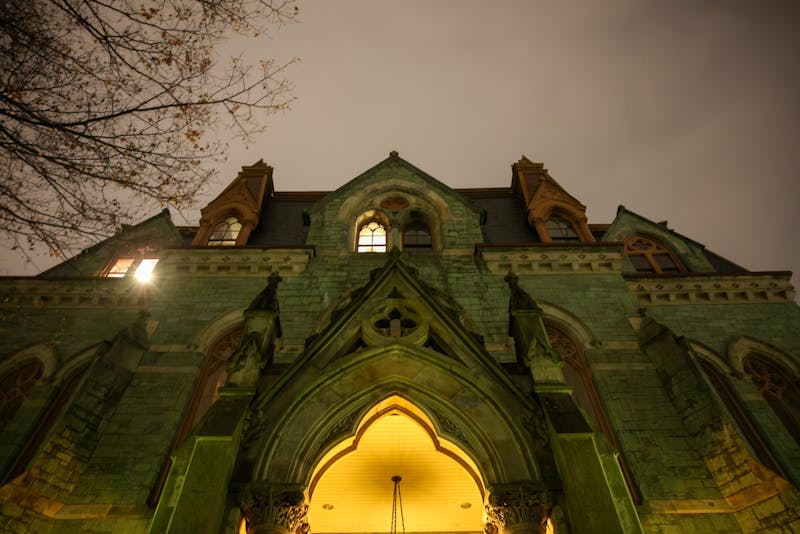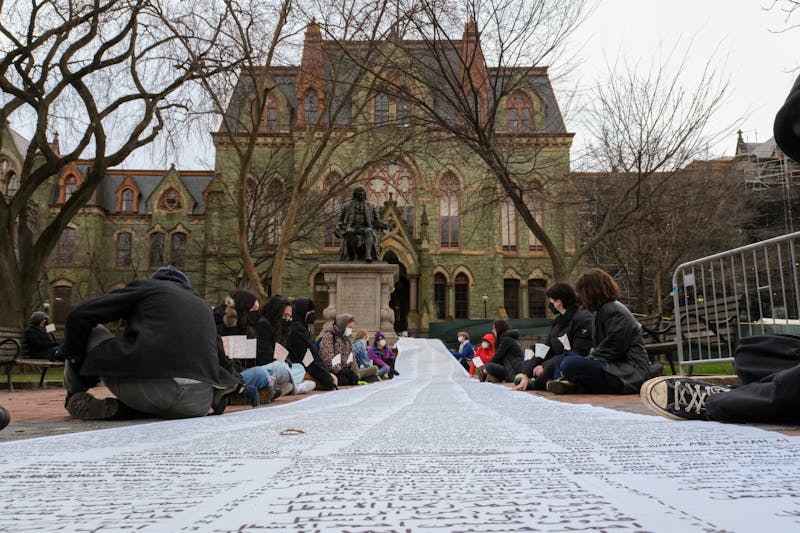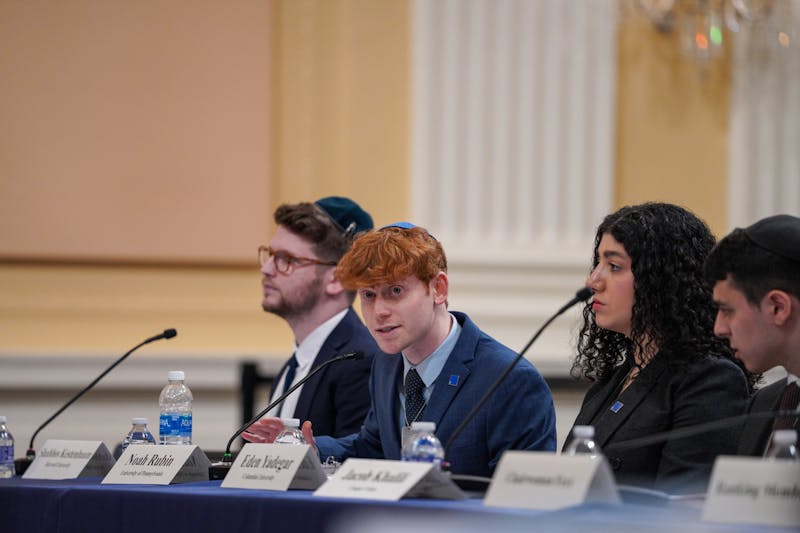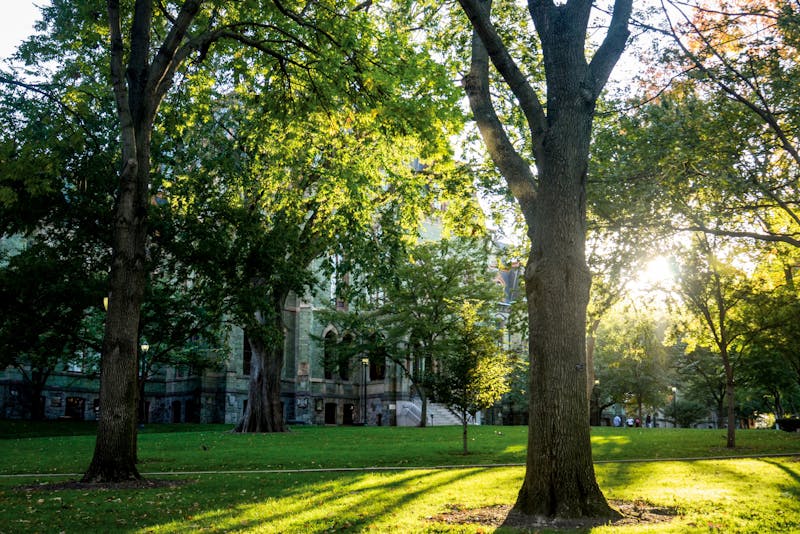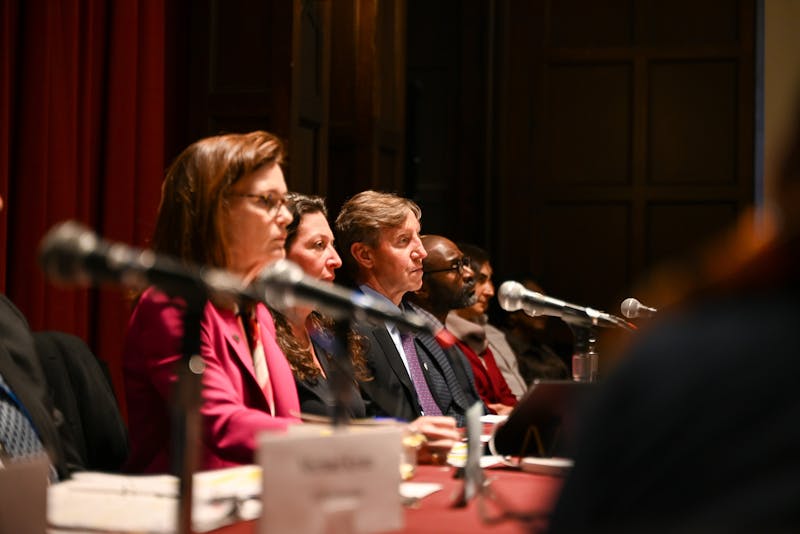
The University revoked Penn Students Against the Occupation of Palestine’s status as a registered student group on April 19, a spokesperson told The Daily Pennsylvanian.
On March 21, the DP reported that the Center for Community Standards and Accountability was leading the investigation into PAO, a pro-Palestinian student organization. The deregistration marks a new step in the University’s response to heightened tensions pertaining to the Israel-Hamas war, as it has not previously publicly disciplined any student organizations.
“The Office of Student Affairs (OSA) has revoked the registration of Penn Students Against the Occupation, effective immediately," the University spokesperson wrote. "This group has failed to comply with policies that govern student organizations at Penn, despite repeated efforts to engage with the group and to provide opportunities to resolve noncompliance.”
A PAO statement published on Instagram on the night of April 19 said that the organization had its registration revoked, adding that the group was forced to remove any affiliation with Penn — including its Instagram username and the ability to host events on campus.
The statement, which was co-published with the Philly Palestine Coalition, National Students for Justice in Palestine, and writer Jenan Matari, contended that the decision followed “a weeks-long investigation … into PAO’s content on social media.”
“This sham investigation, which hinged on baseless allegations of discrimination from faculty members who attended a well-publicized trip to Israel, was never completed,” the statement read. “During the investigation period, administrators placed temporary restrictions on PAO that disallowed us from hosting or co-sponsoring events … and, most recently, attempted to limit our social media presence.”
In early January, approximately 30 Penn faculty members attended a solidarity mission to Israel — which was organized separately from the University — in the wake of the Oct. 7, 2023 Hamas attacks on Israel. Over the span of three days, the group met with academics, Penn alumni, and political leaders — including President of Israel Isaac Herzog.
Several attendees praised their experiences on the trip, while multiple Penn community members were critical of its timing amid the conflict.
The DP was unable to confirm that faculty members on the trip to Israel prompted the opening of an investigation into PAO. The trip’s two co-leaders, professor of Psychology Michael Kahana and professor of Cinema and Media Studies Peter Decherney, did not immediately respond to requests for comment.
The PAO statement said that, rather than communicating a decision about allegations against the group or resolving the investigation, “administrators simply wrote that PAO does not meet the criteria for being a registered student group.” It contended that this decision was a result of PAO refusing to provide the University with the names and information of individual student organizers.
The DP could not confirm that this refusal prompted PAO’s removal.
The statement also referenced the recent arrest of over 100 students at Columbia University, calling the decision “a thinly veiled threat against similar demonstrations on our campus.”
Over the past several days, a “Gaza Solidarity Encampment” occupying Columbia’s South Lawn called for the university to divest from Israel. Columbia President and former Penn professor Minouche Shafik authorized the New York Police Department to arrest 113 protesters, and said that all students participating in the encampment are suspended.
The DP could not independently confirm a connection between PAO’s deregistration and activism on Columbia’s campus.
PAO, an organization first formed in 2020, has regularly engaged in on-campus activism since the fall 2023 Palestine Writes Literature Festival.
On Nov. 8, 2023, PAO posted on its Instagram story pictures of projections of pro-Palestinian messages critical of the University onto campus buildings. While the DP did not confirm who organized the projections, which were denounced as antisemitic and “vile” by former Penn President Liz Magill, PAO wrote "in case you missed our light show …" on its Instagram story accompanying pictures of the displays.
Penn Police said at the time that it was conducting a full investigation into the matter, and Magill said that action would be taken in accordance with University policy.
On Dec. 3, 2023, a pro-Palestinian march across Philadelphia — which was hosted by PAO in conjunction with four other organizations — coincided with several businesses along the Walnut Street march route being graffitied with messages both condemning Penn and expressing pro-Palestinian and anti-Israel sentiments. At the time, Penn’s Division of Public Safety said that Penn Police “will be investigating to identify the individuals responsible” for the graffiti.
The march has been denounced as a “riot” by some Jewish community members.
Multiple other pro-Palestinian organizations condemned the decision to revoke the group’s registration on social media.
Harvard University’s Palestine Solidarity Committee and Columbia's Students for Justice in Palestine posted on Instagram that they are in “solidarity” with PAO, and the Philly Palestine Coalition posted “Shame on @uofpenn.”
2013 Engineering graduate and Pennsylvania state Rep. Rick Krajewski (D-Philadelphia) wrote on X — formerly known as Twitter — on April 20 that he was "deeply concerned" by PAO's deregistration, saying that the University's decision will "reinforce the culture of repression" surrounding pro-Palestinian sentiment and activism on college campuses.
“PAO has been banned from campus not for any material violation of conduct policy, but rather because we are being held to an impossible, seldom-enforced standard of organizational visibility that would pose great harm to our members,” PAO's statement read.
The Daily Pennsylvanian is an independent, student-run newspaper. Please consider making a donation to support the coverage that shapes the University. Your generosity ensures a future of strong journalism at Penn.
Donate






